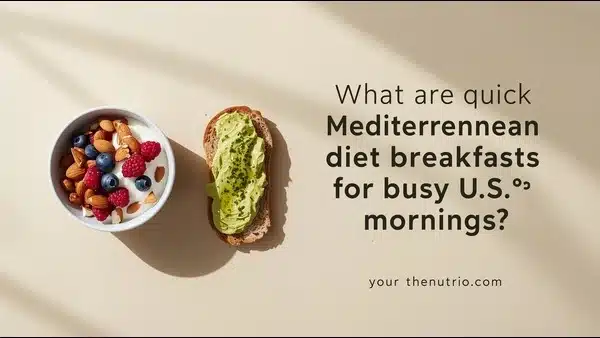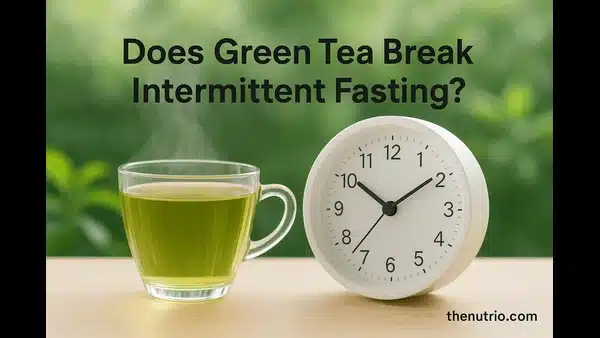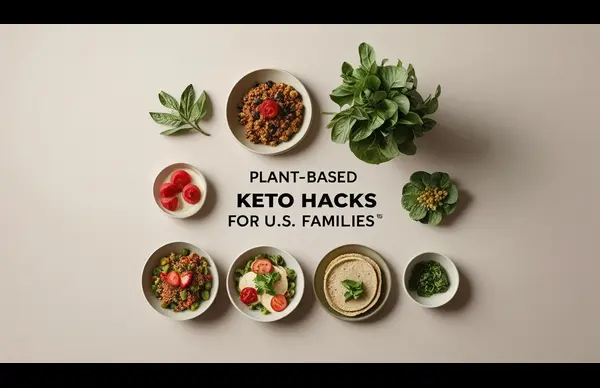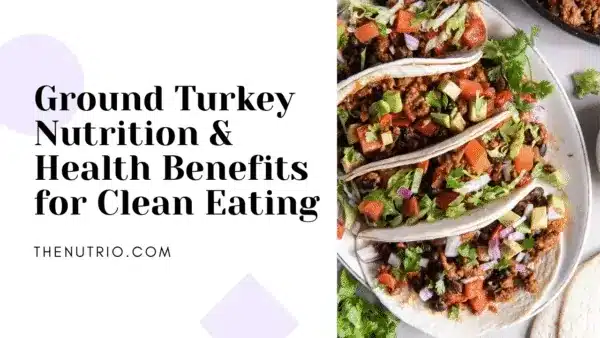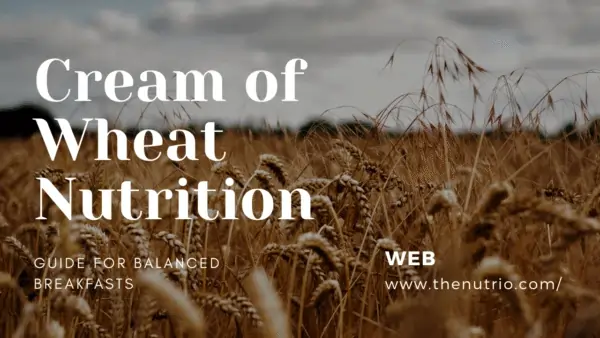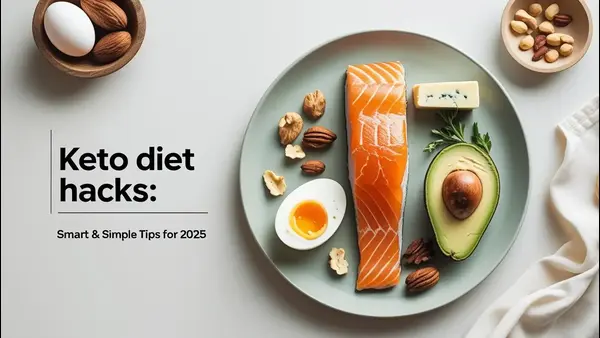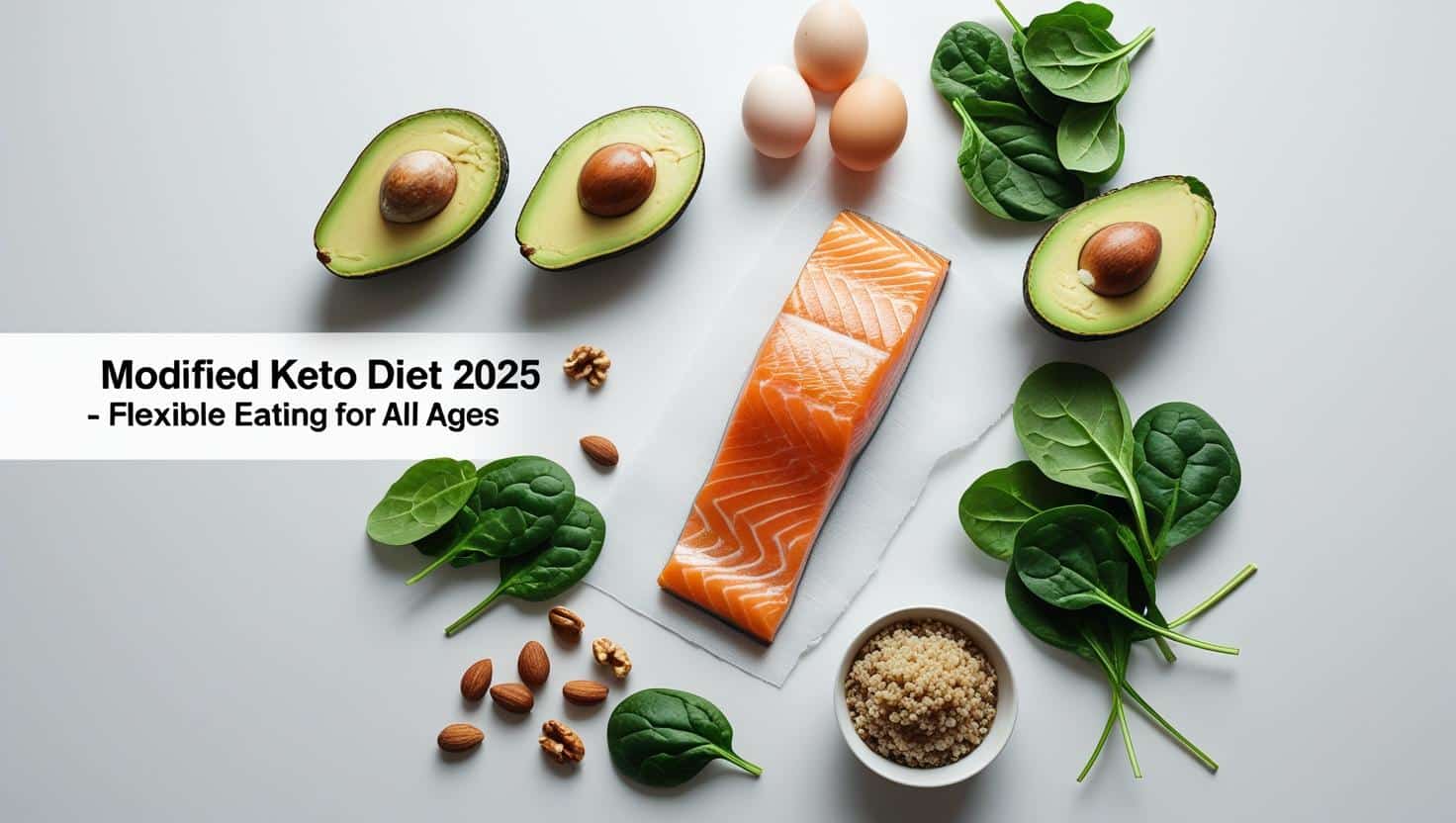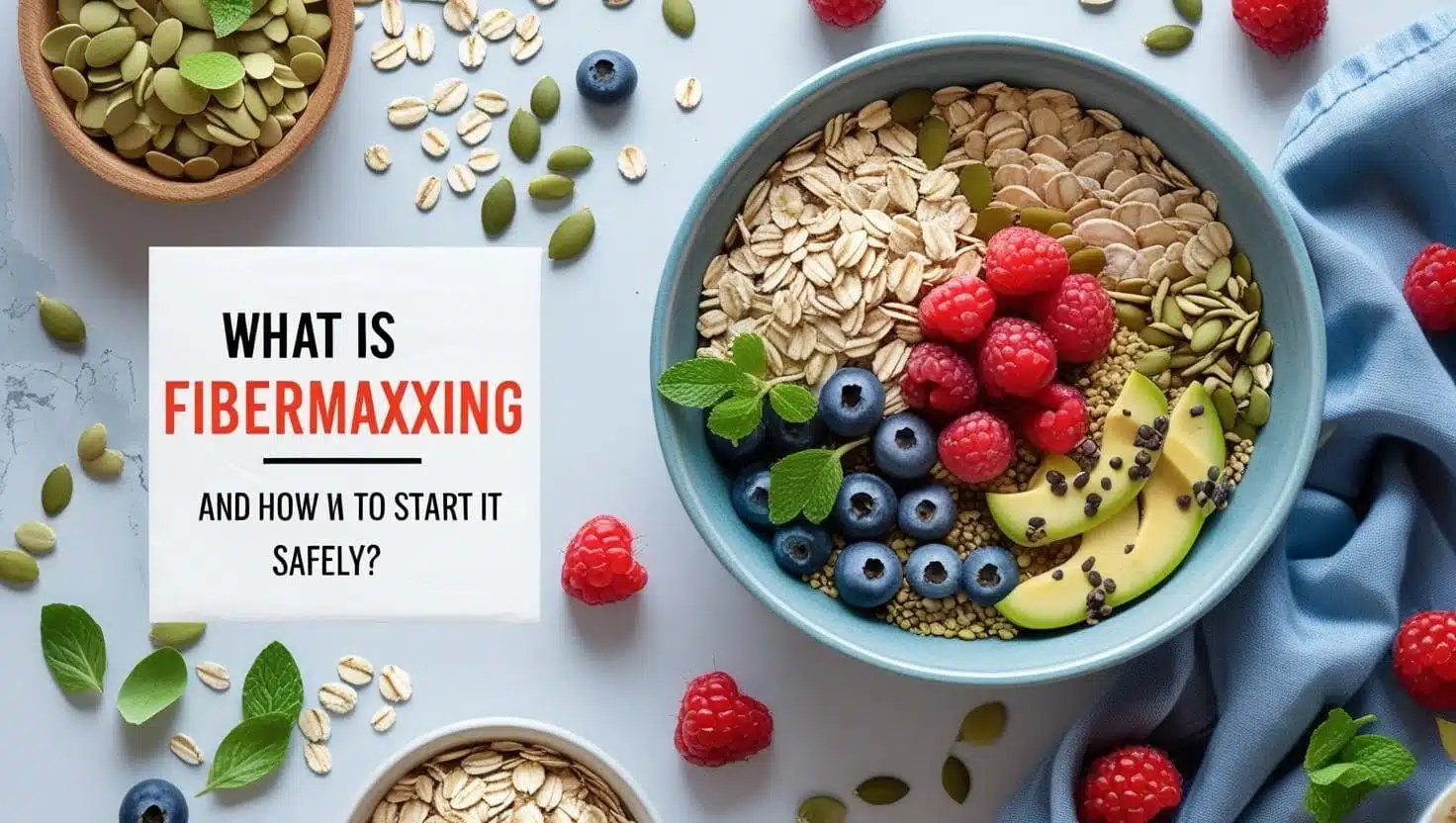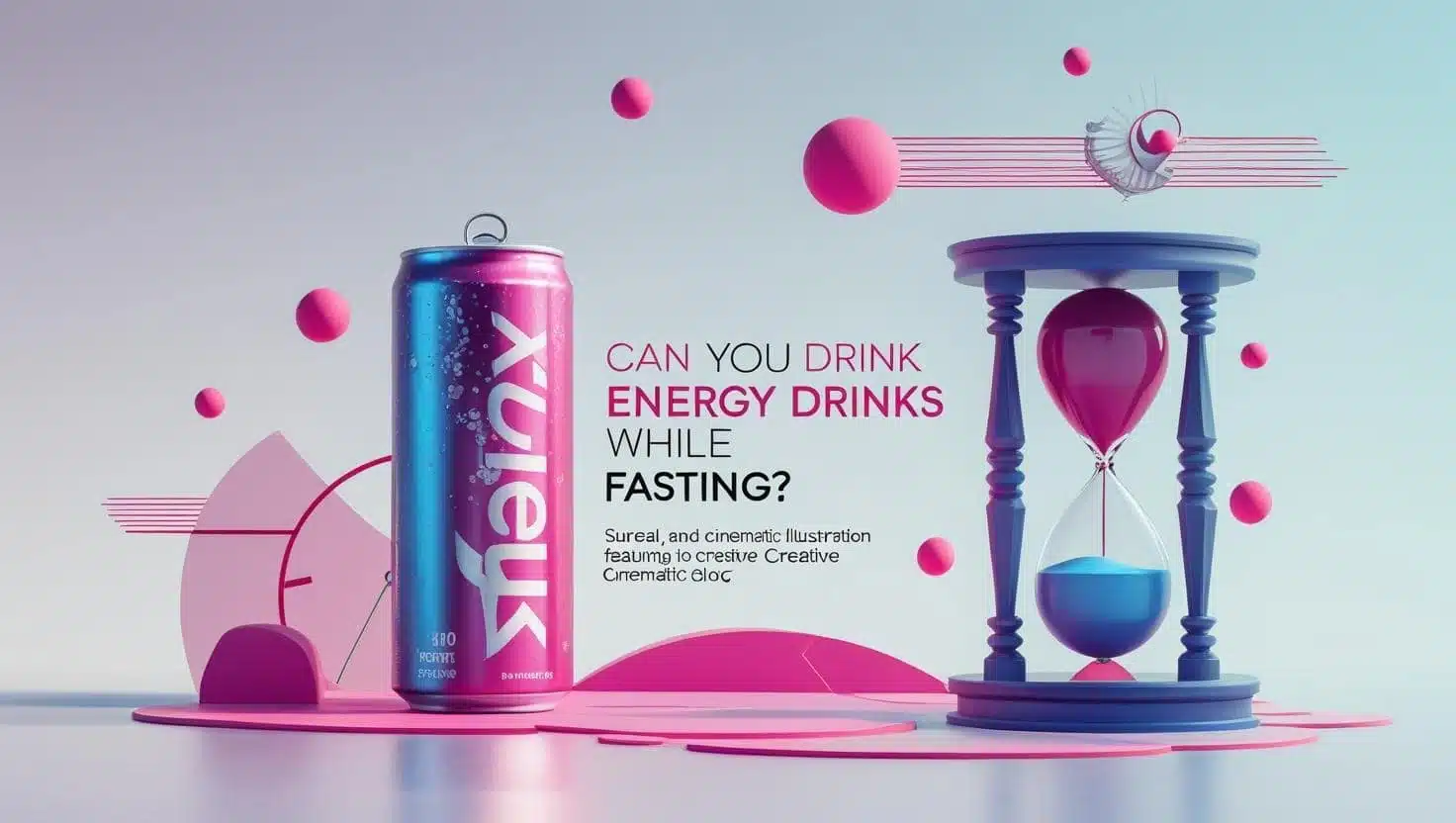
Have you ever opened a sugar-free energy drink while fasting and thought, “Well, it has zero calories, so it must be okay?” You’re not alone. With the rise in popularity of fasting and activity drinks, these drinks are seen as the ultimate cheat: energy without breaking the fast.
Spoiler alert: The answer is complicated, this post breaks down the science as of August 2025 with the latest studies, statistics, pitfalls, and smart hacks. Whether you’re doing 16:8 intermittent fasting, doing a 24-hour cleanse, or just trying to get a few more hours without hunger. All backed by reputable data (yes, Statista, American College of Cardiology, NIH, Google Scholar – class material). Let’s jump in.
Read Also: Can You Fast While On Your Period?
What is a “Fast” anyway?
Let’s agree, there are different types of fasting:
- Time-Restricted Feeding (16:8, 18:6, etc.): No calories during the window.
- Modified Fasting or Fasting Mimicking Diet: Very low (<200 kcal/day) for 2-5 days.
- Metabolic Fast/Autophagy Focus: The goal is to suppress insulin/glucose spikes, burn fat, and promote cellular repair.
General rule? Even 10 kcal from sugar or cream can spike insulin enough to “break” the fast (from a metabolic perspective). But when zero calories come into play, the picture blurs.
What Does “Break Your Fast” Really Mean?
Fasting is not just about skipping meals. According to fasting protocols and verified by sources like Verywell Health, any calorie intake that triggers an insulin response is considered a break in the fast. This includes sugar-sweetened beverages, juices, etc., and yes, most energy drinks are completely sugary.
Even modified fasts, such as 5:2 partial fasting, usually rule out protein (amino acids) or sugar. As they shift metabolism out of ketosis/fasting territory.
Calories vs. Insulin Response
- Calories: Zero calories = likely safe (no energy given). But…
- Insulin & Hormonal Shifts: Some sweets can trigger an insulin or incretin response even without providing any carbs or calories. This can disrupt ketosis or autophagy, depending on your goal.
- Gut & Brain Signals: Your brain can be fooled into consuming the calories-free sweet taste. It make you hungry and will overfeed you after a fasting.
Read Also: Carbohydrates: Energy, Health Benefits & Balanced Diet
Sugary Energy Drinks: Obvious Fast Busters
Traditional energy drinks often carry:
- 200 + calories per can
- 30‒60 g sugar (e.g. sucrose, fructose, maltodextrin)
A Red Bull (8.4 oz) with full sugar content has approximately 27g of sugar, 110kcal of instant bolus. That stimulates insulin quicker and is good to your metabolism, burning fat and your fasting (yes, that includes losing weight).
The marketing may boast taurine, B vitamins, “natural ingredients,” but metabolically it’s like chugging soda. In short: If it’s sweet or has more than 10 calories, consider it a fast-breaker. Drinking one of these during your fasting window will immediately spike insulin and shut down lipolysis (fat burning). Skip them, unless your goal is a metabolic coma. No one fasts or expects to benefit from a sugar bomb. But wait, what about 0-calorie energy drinks?
Do 0 Calorie Energy Drinks Break a Fast?
Typically “0 kcal” energy drinks contains:
- Water + Caffeine: 50-200, roughly same as strong coffee
- Artificial Sweeteners: Such as sucralose, aspartame, acesulfame‑K, acesulfame‑potassium.
- Taurine, B‑vitamins, citric acid, flavorings: No energy.
So yes, 0 calories, but these ingredients can still affect physiology. This is where people get stuck. Brands like Red Bull Zero or Monster Ultra boast zero sugar — but that doesn’t automatically mean they’re safe for fasting.
Artificial sweeteners: Is zero really sugar-free?
- According to a 2025 double-blind RCT, two weeks of daily sucralose or aspartame beverages had no effect on insulin sensitivity or fasting blood glucose in healthy adults.
- A 2022 meta-analysis of 34 RCTs found no significant spikes in glucose or insulin when participants consumed non-nutritive sweeteners with water or food.
- This and large cohort studies (e.g. NutriNet-Sante. BMJ published prospective data on aspartame, sucralose, and erythritol) suggest that if you are metabolically healthy. A zero-sugar drink is likely not going to break your fast.
Recent peer-reviewed research (2024-25) shows:
- Long-term sucralose consumption impairs insulin sensitivity and worsens glucose intolerance in animal models via the T1R3/ERK1/2 pathway in the liver.
- A comprehensive review by Frontiers in mid-2024 found a link between sucralose and changes in gut microbiota, insulin resistance, inflammatory markers, and lipid/energy metabolism.
- A 2025 study on brain imaging revealed that when we consume the Sucralose it has an effect on the hypothalamus. It raises hunger signals far much more than sugar. Although there is no energy or hormonal level of satiety such as insulin or GLP-1.
This suggests that sucralose may be physiologically active, not inactive. But here are the deal-breaker results for Erythritol (May 2025):
Researchers at the NIH (Cleveland Clinic) have discovered that one serving of a popular keto sweetener, erythritol. It boosts production of reactive oxygen species and decreases nitric oxide of the brain blood vessel cells. And augment oxidative stress (stroke potential) even in communitarians. The evidence is less solid, but acesulfame and aspartame were associated with changes in the gut microbiota. And likely incretin effects in a few short-term trials– not yet a slam dunk, but not quite neutral, either.
Take away:
Sugar-free ≠ harmless. These sweets might in some ways be responsive to the brain and blood vessels. Those that do not have calories but that are potentially harmful to vascularity over the long-term.
Caffeine in a Fasted Body: Brain Bliss or Risky Business?
Here’s the good news: caffeine itself doesn’t break a water fast. Caffeine often gets a thumbs up from IF advocates (e.g., coffee to curb hunger). Caffeine alone (black coffee) doesn’t reliably break a metabolic fast—it can also increase fat oxidation and is generally allowed in fasting protocols.
B vitamin shots, taurine have negligible effects on insulin or blood sugar. They are biologically “bulky” in this context. Some people report dizziness, nervousness, or sleep disturbances when combining caffeine with fasting.
But, without food in your gut, caffeine reaches your bloodstream more quickly, and the kick is quicker—but that means a bigger panic and stress response, especially on an empty stomach.
In fact, emerging science suggests that it may enhance the benefits of fasting. A June 6, 2025 meta-review in Current Nutrition Reports highlights how intermittent fasting (IF) robustly upregulates autophagy, inflammation control, and genetic markers of senescence through the AMPK-mTOR pathway and increased β-hydroxybutyrate (ketones).
Caffeine’s Role in Autophagy
Animal models (e.g., mice within 1–4 hours of coffee consumption) show severe spikes in LC3‑II, Beclin‑1, ATG proteins, classic autophagy biomarkers, even after consumption of decaf coffee. Laboratory studies have shown that caffeine activates AMPK, inhibits mTOR, and upregulates SIRT1, particularly in muscle and liver cells.
One study found that caffeine reduced neurodegenerative inflammation (via NLRP3 inflammasome inhibition), specifically through autophagy induction in microglia cells. Bottom line? Black coffee, plain caffeinated beverages (no added sugar at all) can do more than just make you stay awake. They can take part in the weight-loss, cell-cleansing story.
How much caffeine is still “safe”?
The US FDA and Mayo Clinic agree: Up to 400mg/day of caffeine is considered safe for most healthy adults, about 4 cans of an 80-100mg energy drink each. But tolerance varies, and the risk of dehydration may be higher during fasting.
Research from ACC Asia 2024 suggests that consuming more than 400mg per day may increase the risk of high blood pressure and cardiovascular stress, even in healthy adults. A 2024 follow-up study confirmed persistent elevations in resting heart rate and blood pressure in habitual caffeine users.
Energy drinks can easily cross this limit
The 16oz high caffeine product usually contains 200-300mg/serving (such as Celsius, Bang, Monster). Add other stimulants, such as guarana, taurine or yohimbine and your heart rate device will panic.
Simply put: Fasting does lower the tolerance level with caffeine and most energy drinks exceed what is considered a moderate dose being taken out of the can.
Practical Rules for Zero Cal Energy Drinks While Fasting: (2025 Edition)
- Water first: H₂O > black coffee > zero‑cal drinks.
- If needed, limit to 1 can per day at the beginning of your fasting window.
- Prefer sweetened versions of aspartame or stevia over sucralose/Ace-K where possible (less brain/gut signal evidence).
- Track your hunger: If your fast window ends earlier after drinking, this can interfere.
- Cycle or skip the cans: Choose days for dry fasting or pure water cleaner autophagy reset.
- Those using a ketone or glucose monitor can test. If it causes glucose to spike or ketones to drop, skip it.
Use Cases: “What to do if …” in real life
- You’re on a 16:8 fast in 10 hours, feeling weak. A zero-calorie energy drink can help you hit your goal—with minimal risk—and no sugar to knock you out of ketosis.
- You’re doing a 72-hour autophagy fast. Skip all sweets—even zero-calorie ones.
- If your goal is simply to avoid overeating, but the brain is craving a sweet taste… sucralose often ruins the craving—and can lead to overeating later.
Conclusion
Zero-calorie energy drinks generally don’t break the fast in terms of basic “just calories.” However, those sweeteners can subtly affect insulin sensitivity, hunger hormones, brain reward circuits, and potentially reduce some of the benefits of fasting—especially for the goals of autophagy or insulin/glucose control. If you’re fasting casually (e.g. to save calories or a 16:8 meal schedule), then one might be fine here. But for more rigorous fasts, plain water, black coffee, or unsweetened tea are the safe bet.
Frequently Asked Questions (FAQs)
Yes, if you only care about calories. But be careful: sucralose can increase hunger or lower insulin.
Controlled studies show that Red Bull Zero does not significantly raise glucose or insulin in most healthy people, but sucralose and Ace-K can significantly increase subsequent insulin responses.
No — they don’t add calories or stimulate insulin. They are metabolically harmless during fasting.
Aspartame stimulates fewer hunger or insulin signals than sucralose, although research is still developing.
Maybe. Autophagy is sensitive to insulin/incretin signals. If your goal is long-term health/metabolic reset, consider avoiding sugary foods altogether.
Measure your blood sugar or glucose before drinking and 15-30 minutes after (in a fasting state). Also track subjective hunger/stress.
Disclaimer: The information on thenutrio.com is only for educational and informational purposes and is not meant to be medical, nutritional, or professional health advice. Before making any changes to your diet, treatment plan, or health routine, you should always talk to a qualified healthcare provider, doctor, or registered dietitian. You use any information on this site at your own risk, and thenutrio.com and its authors are not responsible for any bad results.


